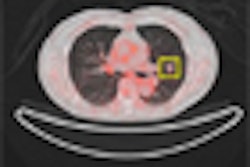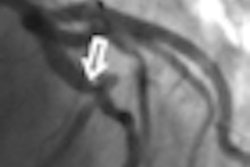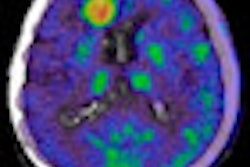
NEW YORK (Reuters Health), Aug 9 - Short-course split-dose radiotherapy helps relieve the symptoms of advanced non-small cell lung cancer (NSCLC), Polish oncologists report.
They based their conclusion on a retrospective study of 1,250 patients. All of the patients were ineligible for palliative chemotherapy because of poor performance status, weight loss, comorbidities, or old age. Instead the patients themselves opted for two series of 20 Gy in five fractions each, four weeks apart, targeted at the primary tumor with a 2-cm margin of normal tissue in the mediastinum.
In a July 31 online paper in Lung Cancer, Dr. Marian Reinfuss and colleagues at the Center of Oncology--Maria Sklodowska-Curie Memorial Institute, Krakow, report that 638 patients (51%) had some palliative effect from the treatment, and 25.1% had resolution of symptoms. Specifically, response rates were 54.1% in patients with cough, 68% in patients with hemoptysis, 51.1% in those with thoracic pain, 38.3% in those with dyspnea, 12% of those who had hoarseness, and 8% in patients with dysphagia.
Ninety-two percent of patients could tolerate two courses of treatment at the planned dose and time. One hundred patients did not undergo the second course of radiation for various reasons; however, it was discontinued for toxicity in only 12 patients, and only 14 patients actively chose to discontinue.
Nonetheless, all the treated patients developed radiation esophagitis, and 22% had nausea. Most recovered from esophagitis within two to four weeks after the first course, and by five to six weeks after the second course.
The median survival from the day the patient was scheduled for palliative radiotherapy was 6.5 months. All had died within 36 months.
The authors conclude that the protocol is safe and effective for patients with advanced NSCLC who are not eligible for palliative chemotherapy.
They add, "Low costs, low frequency of hospitalization, good patient compliance, and a good therapeutic index favor hypofractionated regimens against longer schedules in patients with poor performance status."
Source: http://link.reuters.com/rus93n
Lung Cancer 2010.
Last Updated: 2010-08-09 11:15:21 -0400 (Reuters Health)
Related Reading
Concomitant radiochemotherapy best for locally advanced non-small cell lung cancer, April 6, 2010
Adaptive radiation therapy monitors tumor change, December 25, 2009
ASTRO: Use PET for NSCLC judiciously, November 3, 2009
Copyright © 2010 Reuters Limited. All rights reserved. Republication or redistribution of Reuters content, including by framing or similar means, is expressly prohibited without the prior written consent of Reuters. Reuters shall not be liable for any errors or delays in the content, or for any actions taken in reliance thereon. Reuters and the Reuters sphere logo are registered trademarks and trademarks of the Reuters group of companies around the world.



















